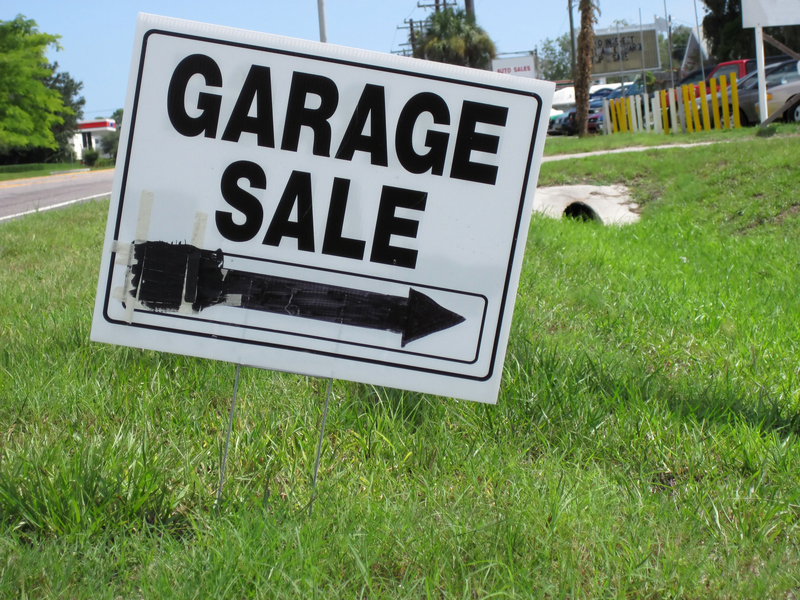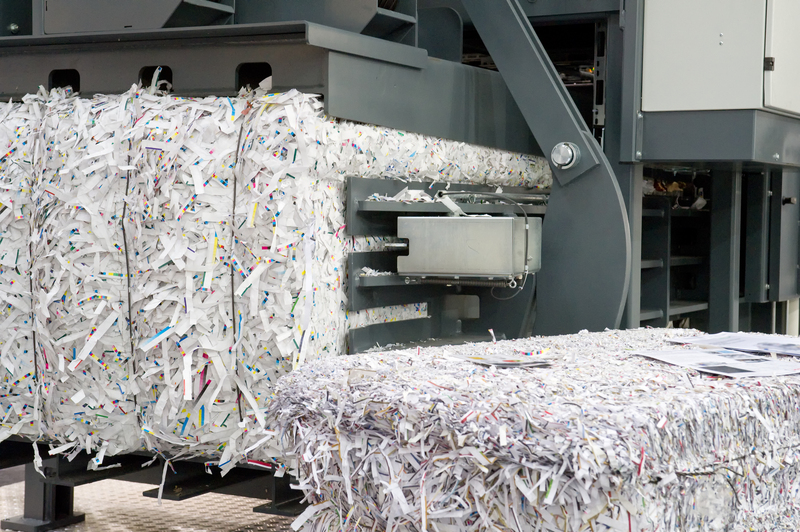Exploring Donation and Recycling Options for Unused Cookware
If you've recently decluttered your kitchen and stumbled upon unused pots, pans, and bakeware, you're not alone. Every year, millions of households find themselves with surplus kitchen items that are no longer needed. This surplus presents a unique opportunity: rather than sending these items to landfill, you can donate cookware or explore responsible recycling options for unused cookware. In this comprehensive guide, we'll explore the best ways to donate and recycle your gently used kitchenware, the environmental impacts of responsible disposal, and offer tips to ensure your unused cookware finds a new purpose.

Why Consider Donation or Recycling for Cookware?
Our kitchens are often home to a collection of pots, pans, baking sheets, and utensils that we may rarely use. When decluttering, the easiest solution is to throw away these unused items. However, this practice contributes to landfill congestion and misses an opportunity to support those in need. Donation and recycling not only serve environmental goals but can also provide essential cooking tools to individuals, families, or organizations.
Environmental Impact of Disposing Kitchenware
- Reducing landfill waste: Metal and plastic cookware can take decades or even centuries to decompose in landfills.
- Lowering carbon footprint: The eco-friendly disposal of kitchenware helps reduce emissions and conserves resources necessary for new production.
- Promoting circular economy: Reusing and recycling products keeps them in use longer and reduces the need for raw materials.
Social Benefits of Donating Unused Kitchen Items
- Supporting local families and individuals: Many people, especially those moving to a new home or on tight budgets, are in need of cookware.
- Equipping community organizations: Shelters, soup kitchens, and charities often welcome kitchenware donations.
- Fostering community spirit: Donating encourages a culture of sharing and helping within your neighborhood.
Donation Options for Unused Cookware
Before discarding that lightly-used casserole dish or spare frying pan, consider the various donation options for unused cookware available to you. Donating not only prolongs the life of functional items but can help those in need access vital kitchen tools.
Where to Donate Kitchenware
- Thrift stores and charity shops: National chains like Goodwill, Salvation Army, and Habitat for Humanity ReStores accept most kitchenware, including pots, pans, and baking dishes, provided they are clean and in good condition.
- Homeless shelters and transitional housing programs: Cookware is a necessity for individuals seeking to rebuild their lives; shelters often welcome donations of gently used pots and pans.
- Community centers or churches: Many local organizations operate donation programs or kitchen supply drives for low-income families or migrants.
- College students and first-time renters: Consider posting on campus or community boards, or social media groups, where students and young adults may be searching for affordable kitchen tools.
- Domestic violence and women's shelters: These shelters often need full sets of cookware to help residents transition into independent living.
Tips for Donating Cookware Responsibly
- Clean thoroughly: Remove food residue and grease. Give pots, pans, and bakeware a good wash before donating.
- Check for damage: Only donate items that are free from major cracks, warping, or broken handles.
- Bundle for convenience: For cookware sets, keep the items together with lids and instructions if available.
- Contact ahead: Some organizations have specific needs or may stop accepting donations temporarily. Call ahead to ensure they accept kitchenware.
- Include utensils or small kitchen gadgets: If you are decluttering, add spatulas or serving spoons to your donation box.
Recycling Options for Unused Pots, Pans, and Kitchenware
Not all kitchen items are suited for donation. Worn-out or damaged cookware, especially those made of certain materials, shouldn't be left to clutter your cupboards or sent directly to landfill. Instead, explore suitable recycling solutions for old cookware that promote environmental responsibility.
Which Kitchen Items Can Be Recycled?
Most metal cookware, including stainless steel, cast iron, aluminum, and copper, is recyclable. However, nonstick items, ceramic, and plastic-based items may require special handling.
- Aluminum and stainless steel: These can often be placed in scrap metal collections or brought to municipal recycling centers.
- Cast iron: Even rusty or broken cast iron pans are valuable to scrappers who can recycle the metal.
- Nonstick pans: Pans with Teflon or ceramic coatings need special processing; check with your local recycling program for recommendations.
- Glass bakeware: Tempered glass (like Pyrex) is not typically accepted with standard glass recycling but may be accepted at specialized facilities.
- Plastic items: Only certain types of kitchen plastics are recyclable--look for recycling codes and consult your municipality.
How to Recycle Old Cookware Effectively
- Contact local recycling centers: Reach out to your city or county recycling department to confirm which items they accept and in what condition.
- Utilize scrap metal yards: Many yards will buy or accept metal cookware, regardless of condition, provided it is mostly metal and non-electronic.
- Remove non-recyclable parts: Separate plastic handles or attachments which may not be accepted in metal streams.
- Prepare items for drop-off: Clean the cookware and remove food debris to avoid contamination in recycling bins.
- Explore manufacturer take-back programs: Some brands, including certain high-end cookware manufacturers, offer recycling programs for their products.
The Difference Between Donation and Recycling
It is important to recognize the distinction between donating and recycling unused cookware:
- Donation: Involves giving away usable cookware to individuals or organizations who will put them to direct use.
- Recycling: Involves processing kitchenware at specialized facilities so that their materials (metal, glass, plastic) can be used in new products.
If your item is still fully functional and safe to use, prioritize donation. If it's broken, significantly worn, or past its useful life, research the best recycling option.
The Environmental Case for Responsible Kitchenware Disposal
Choosing to donate or recycle unused kitchenware offers measurable environmental advantages. Here's why:
- Resource Conservation: Recycling metals from cookware reduces demand for raw materials and mining, which are energy-intensive and damaging to ecosystems.
- Waste Reduction: Every pan or pot donated or recycled is one less item in the landfill. In the US alone, over 16 million tons of food-related metal goes to landfill each year.
- Pollution Reduction: Old nonstick pans can release harmful chemicals if incinerated or left to degrade in landfills. Proper recycling keeps toxins out of the environment.
Creative Upcycling Ideas for Unused Cookware
In addition to traditional donation and recycling, consider upcycling old pots and pans for creative projects around the home or garden. Upcycling extends the life of kitchenware in unique and resourceful ways:
- Garden planters: Old colanders and pots make charming and effective plant containers for flowers, herbs, or succulents.
- Wall decor: Attractive or vintage pans can be repurposed into wall hangings, chalkboards, or clock faces.
- Tool organizers: Affix a muffin tin or baking sheet to the wall as a magnetic spice or screw organizer in your garage or workshop.
- Bird baths or feeders: Use shallow baking dishes as bases for bird baths or feeders in your backyard.
Before upcycling, ensure items are clean and safe for their new use. Get creative--the possibilities are endless!
FAQs on Donating and Recycling Kitchenware
Can I donate nonstick pans?
Most organizations will accept nonstick pans in good condition, with no scratches or peeling coating. If the Teflon is worn or chipped, it is unsafe for cooking and should be recycled where facilities are available.
Can glass bakeware be recycled?
Tempered glass, such as Pyrex, is different from regular glass and typically cannot be recycled in standard curbside pickups. Ask your local glass recycling center if they accept heat-resistant glass, or consider reusing or upcycling.
Should I remove plastic handles from metal pots before recycling?
Whenever possible, separate materials to increase recycling efficiency. Metal scrap yards prefer pure metal, so unscrew or cut off handles for best results.
Are there any cookware donation organizations that offer home pickup?
Some charities, such as Vietnam Veterans of America or AMVETS, may offer free home pickup of household goods including cookware in select locations. To check availability, ask your local thrift shops or search online for donation pickup services.
What about damaged or rusted cookware?
Damaged or rusted metal pots and pans are excellent candidates for recycling, but generally not for donation. Recycle through metal scrap programs or turn them into upcycled projects.

How Businesses and Restaurants Can Donate or Recycle Bulk Cookware
Restaurants, caterers, and hospitality businesses frequently update their kitchenware and often end up with large quantities of used items. Many of the same donation and recycling methods apply, with a few special considerations:
- Bulk donations: Nonprofits, shelters, and food banks may accept large quantities of cookware or utensils from business donors. Call ahead to arrange for organized drop-offs or pickups.
- Corporate recycling: Work with commercial recycling services offering pickup for bulk metal, glass, or plastic kitchenware.
- Charitable tax deductions: Businesses may receive tax benefits from donating inventory and should keep records for their accountants.
- Partner with culinary schools: Cooking academies sometimes accept professional-grade kitchen equipment for student training.
Conclusion: Give Your Unused Cookware a Second Life
Every piece of unused kitchenware represents an opportunity--to help someone in need, reduce waste, and protect the planet. By donating cookware in good condition, you support local charities and individuals. By choosing recycling solutions for old pots and pans, you keep valuable resources in circulation and reduce your environmental impact. Even if your items are too battered for kitchen use, creative upcycling can turn them into something new and beautiful.
Before you throw away that old saucepan or baking tray, think about where it could do the most good. Explore all your options, and take pride in knowing you've made a difference in your community and for the environment. Together, we can make kitchen decluttering a force for positive change!
